News
-
 Climate
ClimateTranquil ecosystems may explain wild swings in carbon dioxide stashing
Semiarid ecosystems, such as grasslands and shrublands, are behind the large variation in the amount of atmospheric carbon dioxide sucked in by land each year.
By Beth Mole -
 Genetics
GeneticsMutations that drive cancer lurk in healthy skin
Healthy tissue carries mutations that drive cancer, samples of normal skin cells show.
-
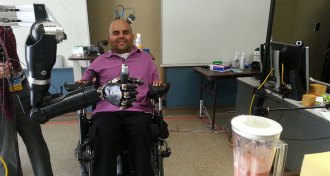 Neuroscience
NeuroscienceBrain implants let paralyzed man move robotic arm
Implanting tiny silicon chips in the action-planning part of a paralyzed man’s brain let him smoothly control a robotic limb with his thoughts.
By Meghan Rosen -
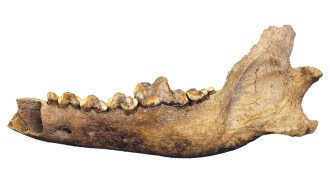 Genetics
GeneticsAncient DNA pushes back timing of the origin of dogs
DNA extracted from the fossil of an ancient wolf indicates dogs and wolves diverged longer ago than previously thought.
-
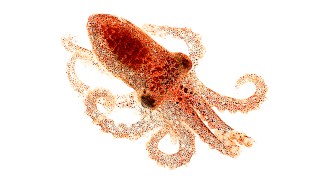 Animals
AnimalsOctopuses can ‘see’ with their skin
Eyes aren’t the only cephalopod body parts with light-catching molecules.
By Susan Milius -
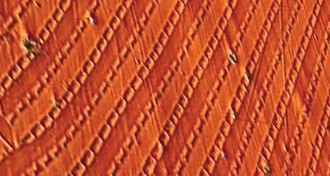 Materials Science
Materials ScienceLike a balloon, peculiar magnet grows and shrinks
A recently discovered alloy of iron and gallium can expand and contract like a balloon when exposed to a magnetic field.
By Andrew Grant -
 Archaeology
ArchaeologyEarliest known stone tools unearthed in Kenya
East African discoveries suggest stone-tool making started at least 3.3 million years ago.
By Bruce Bower -
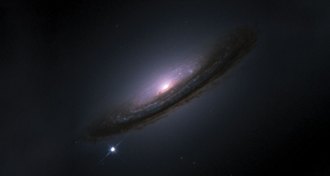 Astronomy
AstronomyPeeks into early life of supernovas show how to blow up a star
Multiple supernovas show off some of the ways a star can explode.
-
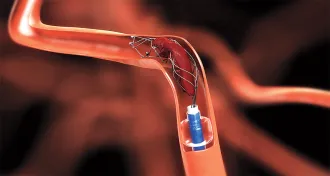 Health & Medicine
Health & MedicineSnagging blood clots upgrades stroke care
A new device threaded up to the brain via catheter can unblock vessels in cerebral arteries, studies show.
By Nathan Seppa -
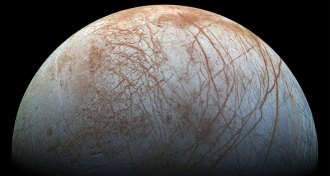 Planetary Science
Planetary ScienceSea salt may stripe Europa’s surface
Salt deposits on Jupiter’s moon Europa might be responsible for brown stripes on the icy satellite’s surface.
-
 Materials Science
Materials ScienceSpiders spin stronger threads with nanotubes
Spiders sprayed with carbon nanotubes spin supertough strands of silk.
By Meghan Rosen -
 Psychology
PsychologyQuantity counts for baboons
Counting-like logic helps baboons track and compare accumulating sets of peanuts.
By Bruce Bower